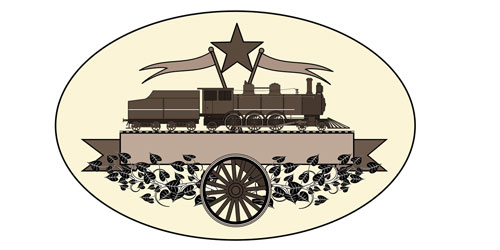《论语诠解英文版》——Chapter XVIII 微子(Weizi)
[18- 1] 微子去之, 箕子为之奴, 比干谏而死。孔子曰: " 殷有三仁焉。"
18.1 Weizi (Viscount of Wei) left King Zhou of Shang in self-exile. Jizi (Viscount of Ji) was enslaved by King Zhou, whereas Bi Gan died in boldly remonstrating with King Zhou. The Master said, "The Yin had at least three great men of true virtue."
[Comment] "之 zhT " refers to "纣王 zho u w6ng" (King Zhou of Shang) who was the corrupted and cruel last ruler of the Shang Dynasty (also known as the Yin Dynasty). "微子 we i zT " (Viscount of Wei) was the elder brother of King Zhou of Shang, both" 箕子 jT zT "(Viscount of Shang) and"比干 bT gan" were King Zhou's uncles.
[Reading] King Zhou of Shang was the last ruler of the Shang Dynasty. Traditionally, he was known as a cruel, debauched, iniquitous and crooked king, whose name was closely tied with decadence, corruption, infamy, and demoralization in Chinese history. Failing to persuade King Zhou to rectify his evil behaviors, Weizi, Jizi and Bi Gan either left him in self-exile or was made by him as a slave or was forced to die (the cold-blooded King Zhou even ordered to have Bi Gan's chest cut open to rib his heart). Confucius was impressed by their sense of the righteous and regarded them as the only men of virtue in the Shang dynasty.
[18- 2] 柳下惠为士师, 三黜。人曰: “子未可以去乎?"曰: “直道而事人, 焉往而不三黜?枉道而事人, 何必去父母之邦?”
18.2 As a head judge for criminal affairs in the State of Lu, Liuxia Hui was dismissed from his position several times. Someone asked him, "Sir, why don't you just leave Lu?" Liuxia Hui replied, "In serving my prince I uphold justice and the righteous, therefore wherever I go I will suffer the same fate. But if I do not uphold justice and the righteous in serving my prince, why then should I bother to leave my home country?"
[Comment] "柳下惠 li u xia hul's" real name was " 展获 zha n huo", whose courtesy name was "禽 q f n." " 惠 hu1" was his honorific title. " 三 s o n" in the phrase " 三 黜 s o n chu" is used in a figurative sense to mean "several times" or "a number of times." " 黑 出 c h u" has two implications. It may con note "dismissal" or "suffering from setbacks in career development."
[Reading] Liuxia Hui was a man of virtue and moral principle. Several times he was dismissed from his position as a head judge for criminal affairs in the State of Lu because he upheld nothing but justice and the righteous in serving the country. Nonetheless he never gave up and always clung to his moral code. Confucius spoke of him highly in the Analects. For example, in Chapter XV he compared the devious minister "臧文仲 Zang Wenzhong" with Liuxia Hui and commented, "Zang Wenzhong was a man who, in pow er, did not attend to his duties. He knew Liuxia Hui was a man of virtue, but did not assign any high position to him." (Section 14, Chapter XV)
[18- 3] 齐景公待孔子曰:“ 若季氏,则 吾不能;以 季孟之间待之。" 曰: “吾老矣,不能用也。“孔子行。
18.3 Duke Jing of Qi, in talking about how to treat Confucius, said, "I am unable to treat him the same way Ji Sunshi of Lu did to him. I may treat him the way in between what Ji Sunshi and Meng Sunshi did to him." But he also added, "I am getting old and I won't be able to use him." So, Confucius left the State of Qi.
[Comment] "季氏 jl shl" refers to "季孙 jl sun" who was the most power ful of the three aristocratic families in the State of Lu. The other two were
"叔孙氏 s h□ sun shl" and " 孟孙氏 m的 g sun s hl" . " 季氏 jl sh l" func tioned as a chief minister in the state. Together, they controlled the government affairs in Lu.
[Reading] Duke Jing of Qi was known as a ruler without virtue and moral disposition. Because of this, when he died, the people could find nothing to praise him. In Chapter XVI, for instance, Confucius recorded, "Duke Jing of Qi had in his possession four thousand horses. However, when he died, the people found there was nothing for which they could praise him. Boyi and Shuqi both died of starvation at the foot of Shouyang Mountain, yet the people praised them until the present day. Isn't it what this may mean?"
[18- 4] 齐人归女乐, 季桓子受之, 三日不朝, 孔子行。
18.4 The State of Qi presented as a gift to the State of Lu female musicians and dancers, whom Ji Huanzi accepted. For the whole three days, the prince and Ji Huanzi did not hold court. So, Confucius left Lu.
[Com ment] " 季 桓 子 j1 hu6n zT" was the posthumous honorific title for Jisun who was a chief minister in the State of Lu. " 归 ku1" is here used interchangeably as "馈 ku1" to mean "to present a gift." " 不朝 bu ch6o" means "to hold no court."
[Reading] Confucius was upset that the prince and Ji Huanzi indulged themselves in sensual pleasure to the point of neglecting governmental af fairs. Obviously, this was not what he would like to see in the rulers whom he would expect to be exemplary figures of ethical conduct. Utterly disap pointed, he left the State of Lu.
[18- 5] 楚狂接舆歌而过孔子曰: “风兮风兮!何德之衰?往者不可谏,来者犹可追。已而,已而!今之从政者殆而!”孔子下,欲与之言。 趋而辟之,不得与之言。
18.5 Jieyu, a mad hermit in the State of Chu, passed by Confucius, singing: "Oh, Phoenix, Phoenix, why your virtue is so shrinking? What was done cannot be undone. But the future is yet to grapple. Well, well! Those who are now in power are being endangered." Confucius left the cart and wanted to talk with him. But Jieyu quickly walked away. Confucius did not get a chance to converse with him.
[Comment] Jie Yu's real name was " 陆 通 lu tong". Jieyu was his courtesy name. Disillusioned with the corrupted government in the State of Chu, he took refuge by living as a mad hermit. In this way he was able to criticize society without incurring persecution.
[Reading] Pretending to be a madman, the hermit Jieyu was trying to reveal truths to people. Intentionally, he passed by Confucius, singing out his wor ry for him. At the same time he seemed to be reminding Confucius that he should focus on a future that was yet to come with opportunities, although the existing government was in crisis.
[18- 6] 长沮、桀 溺耦而耕, 孔子过之, 使子路问津焉。
长沮曰: “夫执舆者为谁?”子路曰: “为孔丘。"曰: “是鲁孔丘与?”曰: “是也。"曰: “是知津矣。"
问千桀溺。桀溺曰: “子为谁?”曰: “为仲由。"曰: “是鲁孔丘之徒与?”对曰: ”然。"
曰: "滔滔者天下皆是也,而谁以易之?且而与其从辟人之士也,
岂若从辟世之士哉?"棱而不辍。
子路行以告。夫子忧然曰: “鸟兽不可与同群,吾非斯人之徒与而谁与?天下有道,丘不与易也。"
18.6 Chang Ju and Jie Ni were tilling in the field when the Master was pass ing by them. He sent Zilu over to ask for the ford. Chang Ju asked Zilu, "Who is this person holding the reigns of the carriage?" Zilu answered, "It is Kong Qiu." "You mean Kong Qiu of Lu?" "Yes," replied Zilu. "In that case he knows where the ford is," Chang Ju said. Then Zilu turned to Jie Ni, who asked "Who are you?" "I am Zhong You," was the reply. "So you are the follower of this Kong Qiu?" "Yes, I am," said Zilu. "The chaotic society and the corrupted rulers you are trying to escape from are like extreme flooding, spreading everywhere," said Jie Ni. "With whom you may be able to change it? Instead of following those who try to escape from the depraved rulers, you may just want to follow those who are escap ing from such a troubled world." With these words, Jie Ni resumed his work in the field. Zilu returned, reporting this to the Master. Sighing heavily, the Master said, "Human beings do not associate with birds and beasts. Although I am not of the same type as Chang Ju and Jie Ni, if I do not form associations with them and pursue the sage king's sacred way of governing society, who else could I work with for a change? Indeed, if the Way of Heaven prevails, I would not need to work so hard with you now in hopes of changing this world."
[Comment] "长沮 c h6 ng ju" and " 桀溺胎 nl" were two well-known her mits in the State of Chu. " 津 jTn" means "ford." "以yT" in "谁以易之s hu f yT yl zhT" connotes "与西" (to be together with). "易yl" translates as "to change" or "to transform." "且 q ie" i n "且而 qie er" means "而且 e r qie" (furthe皿 ore, moreover). " 而 矿 is here used interchangeably with "尔 e r" to mean "you." "忧 wu" denotes "as if feel lost."
[Reading] This passage discusses two different approaches toward the cha otic society and corrupted governance of the Eastern Zhou Dynasty. Unlike the two hermits "长沮 Chang Ju" and "桀溺 Jie Ni" who were escaping from the harsh reality by retreating to nature in a Taoist manner, Confucius opted for social engagement, even though this would require a strong will- power and exceptional ability to endure the impossible. As "君子 Junzi," a man of true virtue, he would try his utter most to restore the Zhou rites of propriety and realize his dream of an ethical society of unity and morality. If unsuccessful, as in his case, he would still fix his mind on truth and stay firm to virtue, never giving up his ideal of a society of supreme harmony.
[18- 7] 子路从而后,遇丈人,以 杖荷荼。子路问曰:“ 子见夫子乎?”丈人曰: “四体不勤,五谷不分,孰为夫子?"植其杖而芸。子路拱而立。
止子路宿,杀鸡为黍而食之,见其二子焉。明日,子路行以告。子曰:“隐者也。“使子路反见之。至,则行矣。子路曰: “不仕无义。长幼之节,不可废也;君臣之义,如之何其废之?欲洁其身,而乱大伦。君子之仕也,行其义也。道之不行, 已知之矣!”
18.7 Zilu, while journeying with the Master, fell behind. He saw an old man who carried, on his back, a basket of his staff. He asked, "Sir, have you seen my Master?" The old man said, "You have not toiled with your four limbs and you even can't tell differences between the five grains! Who is your master?" Having said this, he stuck his staff in the ground and started weed ing. Zilu stood beside deferentially with his hands folded across his chest.
That night the old man invited him to stay in his house. He fed him with a chicken and millet. He also introduced to Zilu his two sons. The following day Zilu left and reported this to the Master. "He must be a recluse," said the Master and he sent Zilu back to visit him again. But the old man was already gone when Zilu arrived there.
Zilu said to the family, "It does not accord with the righteousness if one does not serve on governmental position. If one is not supposed to abandon the relations between old and young, how should one abandon the relations be tween sovereign and minister? To safeguard one's own moral integrity at the cost of the important relations between old and young, and sovereign and minister is misleading. A superior man serves on a governmental position because he wishes to fulfill his moral obligations for the country. As for the fact that the Way of Sage Kings does not prevail now, we are all fully aware of it."
[Comment] "荷 h扩 means "to carry on back." "荼d ia o " refers to a kind of weeding device made of bamboo. " 拱 而 立 go ng er 11" translates as "with one's hands folded across one's chest to show respect." Traditionally, there have been two interpretations of "四休不勤 s1 tT bu qfn, 五谷不分 WU gu bu fen." One opinion is that it refers back to the old man himself that he was so busy with his work in the field that he was not even able to distin guish the five grains. Not to mention who "the master" was. The other one holds that the old man censured Zilu for never engaging himself in farming work and was therefore ignorant. Given the context, we opt for the second interpretation.
[Reading] This passage is a follow-up on the preceding one. Confucius respected those hermits and recluses for their idiosyncratic way of resisting the chaotic society and debased government. As "君子 Junzi," however, he was fully aware of his moral responsibility and was ready to try his best to put into practice his doctrine of restoring the established Way of the Zhou rites of propriety. That is why he travelled fourteen years among the vassal states, trying to persuade the princes to adopt his ideas, although they were not readily appreciated and on many occasions were ignored by the rulers. Chapter XIV records such a situation as follows: "When in the State of Wei, the Master was, one day, playing on a musical stone. A man carrying a straw basket passed the door of the house where the Master resided and said, "The man who is playing on the musical stone seems to be full of worries." After a little while, he said again, "How detestable is this sound of obstinacy! If no one understands you, why not just work for your own interest! It is like crossing a river. If the water is deep, cross it with clothes on. If it is shallow, hold up your clothes and cross it." The Master said, "How decisive this man sounded! Although he does not understand me, I have nothing to blame him for." (Section 39, Chapter XIV)
[18- 8] 逸民: 伯夷、叔齐、虞仲、夷逸、朱张、柳下惠、少连。子曰:“ 不降其志,不辱其身,伯夷叔齐与?"谓: “柳下惠、少连,降志辱身矣, 言中伦,行中虑,其斯而已矣。"谓:"虞仲、夷逸,隐居放言,身中清, 废中权。我则异千是,无可无不可。"
18.8 Those who chose to live in seclusion from society included Boyi, Shuli, Yu Zhong, Yi Yi, Zhu Zhang, Liuxia Hui and Shao Lian. The Master said, "Those who refused to change their mind or disgrace themselves were Boyi and Shuqi." He continued, "Liuxia Hui and Shao Lian surrendered their wills and disgraced themselves, but what they discoursed matched up with the righteous and what they behaved was reasonable. That is all that can be said of the two." As for Yu Zhong and Yi Yi, the Master said, "They chose to live as hermits and refused to comment on social affairs. To safe guard their personal integrity they succeeded in moral self-cultivation. To abandon their official position they did it in response to social contingencies. However, I am different from them. When it comes to the righteous and moral principles, there is no such thing I can either do this or that."
[18- 9] 大师挚适齐, 亚饭干适楚, 三饭缭适蔡,四 饭缺适秦, 鼓方叔入千河,播散武入千汉,少师阳、击磐襄入千海。
18.9 Grand Musician Zhi ran to the State of Qi. Second Musician Gan de parted for the State of Chu. Third and Fourth Musicians Liao and Que left for the States of Cai and Qin respectively. Drum Master Fangshu withdrew to the region of the Yellow River, Pellet Drum Musician Wu retreated to the area of the Han River, whereas Assistant Musician Yang and Stone Chime Musician Xiang all moved to the seashore.
[Comment] "大 ta i" in "大师挚 ta i shT zhl" connotes "太 ta i"' meaning "grand." "挚 zhl" "干 ga n" "缭 li6o " " 缺 q ue" " 方叔 fa ng s h O" " 武 q u" “阳 ya ng" and "襄 xia ng" were the names of the musicians mentioned in this passage. The following are the titles for musicians in a royal court or- chestra in Confucius'time: "大师 ta i shT''(Grand Musician), "亚饭 ya fan" (Second Musician who coordinates music performance for the second royal meal in the court), " 三 饭 son fan" (Third Musician who coordinates music performance for the third royal meal in the court), " 四 饭 sl fan" (Fourth Musician who coordinates music performance for the fourth royal meal in the court), "鼓 g u" (Drum Musician), " 播鼓 bo tao" (Pellet Drum Musi- cian) and "击磐 jT qlng" (Stone Chime Musician). According to the Zhou royal custom, four royal meals were served a day. At each meal there was a musician coordinating the music performance. These musicians were, in descending order of significan ce, "大师 do shi''(Grand Musician), "亚饭 沁 fa n" (Second Musician), "三饭 s on fan" (Third Musician), and "四饭 sl
伯 n" (Fourth Musician).
[Reading] This passage is a follow-up on the preceding ones in which Con fucius described the chaotic sociopolitical situation of the Eastern Zhou Dynasty. Disillusioned by the harsh social reality and the corrupted govern ments, many chose to live in seclusion like those hermits mentioned in some sections of this chapter (Sections 5 through 8). Even members of a royal court orchestra, as discussed here, withdrew and left because of the moral disintegration of the times, neatly summarized as " 礼坏乐崩 IT huai yue 迳 ng" (literally: the rites of propriety corrupted and music scheme defiled).
For example, in Chapter III, Confucius had this to say about Ji Sunshi's transgressive use of eight rows of dancers, with eight dancers in each single file: "If he dares to do this, what else may he not dare to do?" (Section 1, Chapter III) This type of dance, called "八俏 Bayi" , was an imperial dance format, officially prescribed only for the royal family in the court during the Zhou Dynasty (11th cent. -221 BCE). Prime ministers, such as Ji Sunshi were only allowed to use a "Four Rows" dance format. Here, Confucius was criticizing Ji Sunshi, a low-level aristocrat, for inappropriately exercising the form of ceremonies reserved for the royal family, which was a gross trans gression of the rites of propriety. In Confucius'view, it was this disregard of the rules of propriety of the Zhou ruling class and the defiance against the Zhou authority that, among many other things, led to the disintegration of the Zhou power.
[18- 10] 周公谓鲁公曰: “君子不施其亲,不使大臣怨乎不以。故旧无大故,则不弃也。无求备千一人。"
18.10 The Duke of Zhou said to his son, the Duke of Lu, "A superior prince does not neglect his kin, nor does he incur resentment of his ministers for not employing them. He does not remove from their positions his old friends, associates, and acquaintances for minor issues they have. Furthermore, he does not require an individual to possess all talents for any one job."
[Comment] The Duke of Lu, the first duke of the State of Lu, was the son of the Duke of Zhou. His name was "伯禽 b6 qf n" . " 施s hT'' i n " 不施千亲 bu shT yu qTn" is used interchangeably with " 弛 c h f ". The phrase means "not to neglect, distance, or forget about one's relatives." Here, "大臣 d o c h的" refers to important ministers in the court. " 不 以 bu yT" means " 不 用 bu yong".
[Reading] In Chinese history, the Duke of Zhou was highly revered, not only as a virtuous ruler (who played a critical role in consolidating the Zhou court established by his brother King Wu) and a renowned regent for his nephew, the young King Cheng, but also as a culture hero believed to have partially compiled 《尚书》Shangshu (the Book of Documents) and institutionalized 周 礼 Zhou Li (the Rites of Zhou). This passage records his wise advice for his son, the first Duke of Lu. Confucius held the Duke of Zhou in very high esteem and regarded him as an exemplary model of virtue and benevolence, a symbol of an ideal humanism. In Chapter VII, for instance, Confucius sighed, "I am really getting old. I have not dreamed of the Duke of Zhou for quite a long time!" (Section 5, Chapter VII)
[18- 11] 周有八士:伯 达、伯适 、伯突、仲忽、叔夜、叔夏、季随 、
季驸。
18.11 There were eight virtuous men in the Zhou Dynasty: Boda, Boshi, Botu, Zhonghu, Shuye, Jisui, and Jigua.
[Reading] Chapter XVIII focuses on Confucius'discussion of those whom he esteemed as virtuous men, such as Weizi, Jizi, Bi Gan, dignified hermits such as Chang Ju and Jie Ni, musicians with a high sense of integrity, and the eight noble men of virtue in the Zhou Dynasty. All these people either left for other countries, chose to live in seclusion, or suffered hardships with grace. The major reason for their choices was that their rulers were unvir tuous and unethical. That is why Confucius quoted the Duke of Zhou as saying, "A superior prince does not neglect his kin, nor does he incur resent ment of his ministers for not employing them. He does not remove from their positions his old friends, associates, and acquaintances for minor is sues they have. Furthermore, he does not require an individual to possess all talents for any one job." (Section 10 of this chapter)












